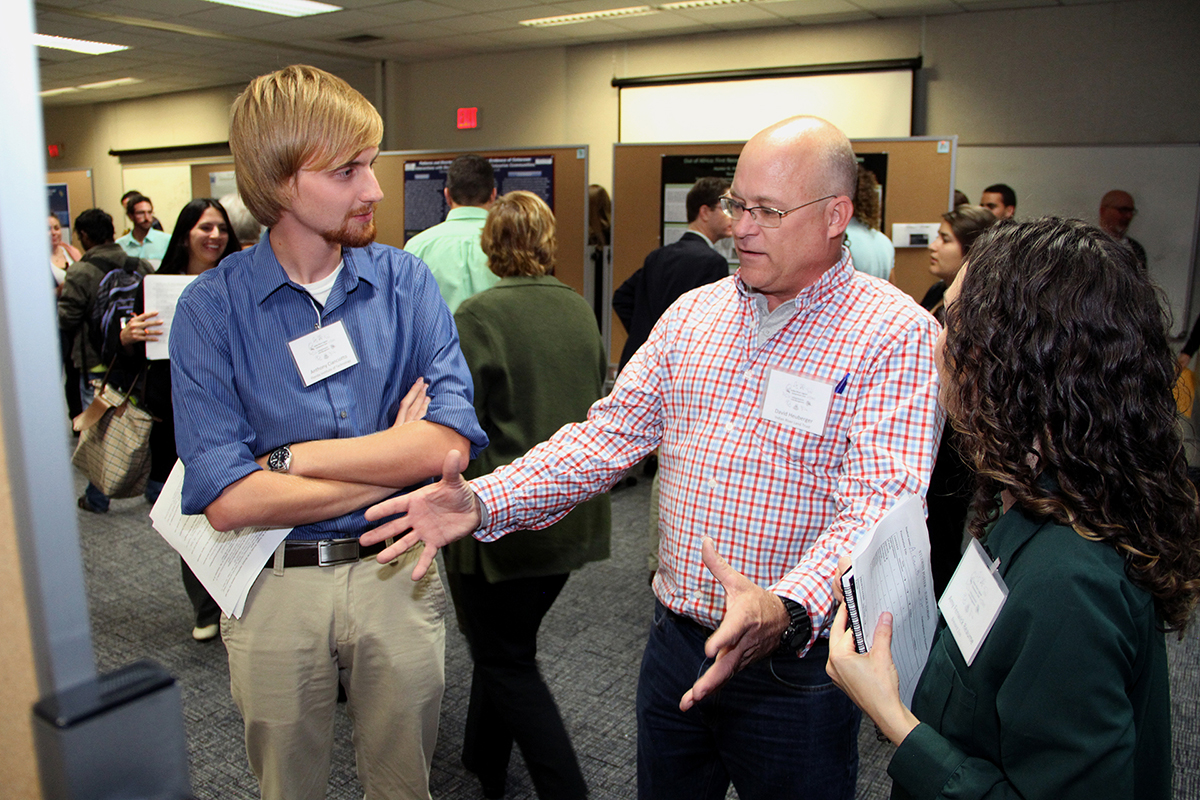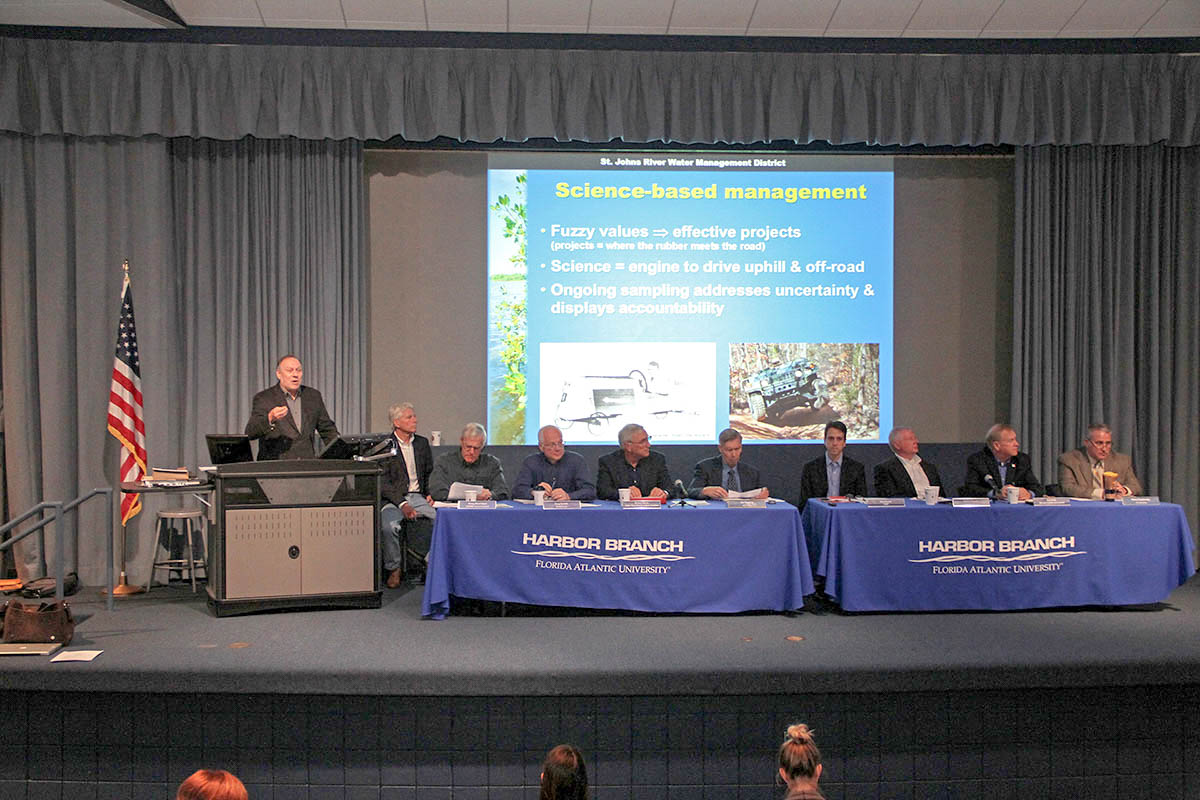Collaborations

A primary goal of IRLO is to work collaboratively with the agencies and neighboring science organizations working in the Indian River Lagoon. While collaboration has always been an integral part of research, the need for collaboration is rapidly accelerating as the magnitude and complexity of environmental issues grow. Addressing these challenges requires partnerships among both disciplines (e.g., biological, chemical, physical sciences) and organizations (e.g., academic, government, and private industry).
The centerpiece of IRLO’s fostering of collaboration and dissemination of scientific information on the Lagoon is the annual Indian River Lagoon Symposium initiated in 2012 with lagoon-wide participation of scientists and resource managers. Another important IRLO initiative to increase collaboration among lagoon scientists and managers was a regional workshop, Connecting Users to IRL Data.

IRLO staff is actively engaged in Indian River Lagoon National Estuary Program (IRLNEP). The lRLNEP is part of a national network established under the Federal Clean Water Act and administered by the U.S. Environmental Protection Agency (EPA) to improve the waters, habitats and living resources of 28 estuaries of national significance in the country designated as estuaries. Each NEP focuses within a study area that includes the estuary and surrounding watershed. The IRLNEP is managed by IRL Council, which includes representatives of four counties bordering the lagoon (Brevard, Volusia, St. Lucie, and Martin counties), the St. Johns River and South Florida Water Management districts, and the Florida Department of Environmental Protection (DEP). The EPA provides guidance to the Council.
Another example of IRLO’s collaboration is active participation in the development of the first Indian River Lagoon Report Card under the auspices of the Marine Resources Council and led by the University of Maryland Center for Environmental Science. A Science Assembly Workshop held in January 2016 facilitated input from scientists and resource managers to define ecological health indicators and establish benchmarks. The Report Card will grade numerous indicators of the lagoon’s ecological health. The workshop identified IRLO as a key provider of data, including its water quality and seagrass time series and IRLON data.

